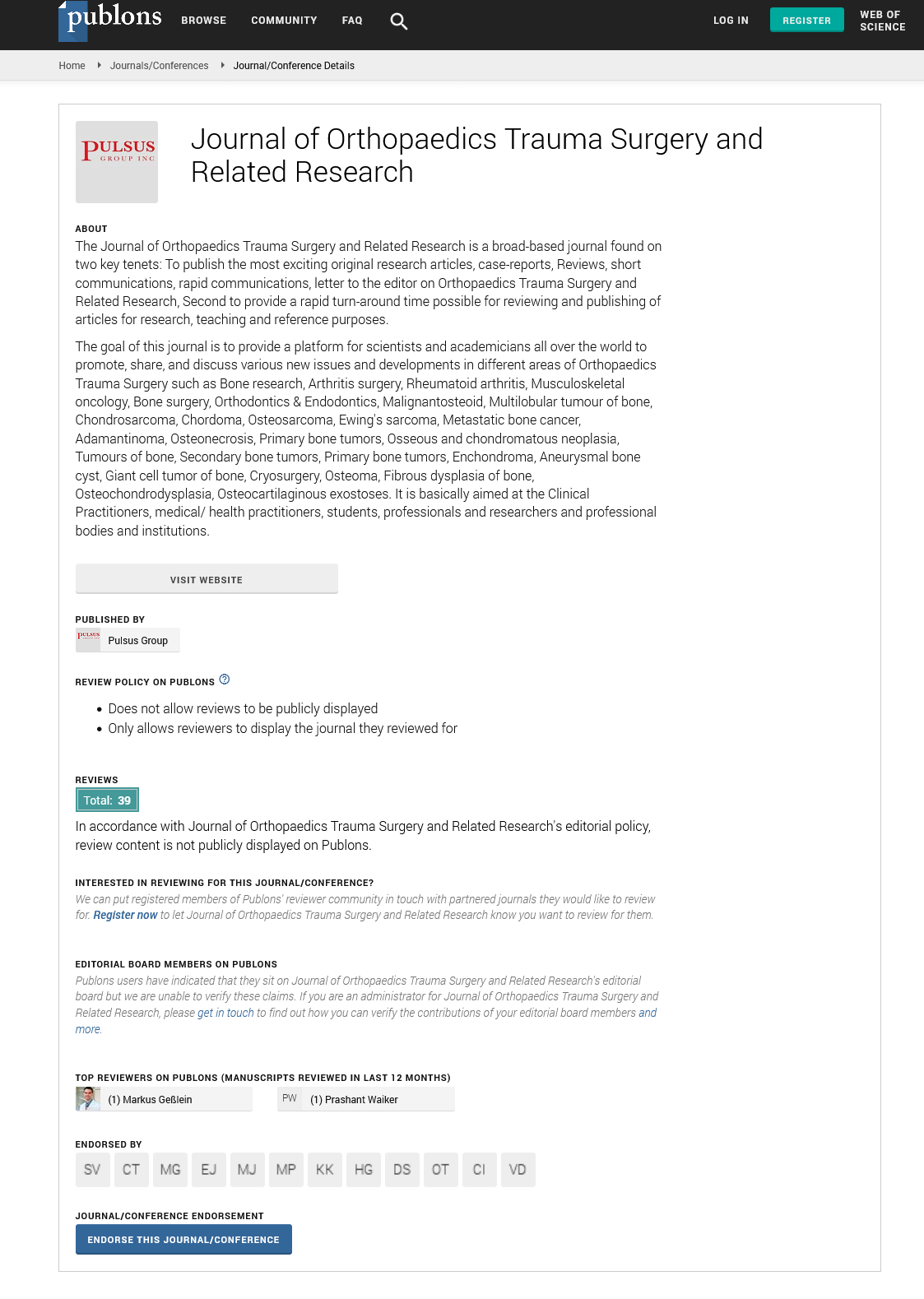
Sign up for email alert when new content gets added: Sign up
The struggle with rheumatism through Dracunculus vulgaris Schott: In the light of ethnobotanical information
10th International Conference on Orthopedics, Trauma and Rheumatology
March 08-09, 2018 London, UK
Fatma Tugce Guragac, Mert Ilhan and Esra Kupeli Akkol
Gazi University, Turkey
ScientificTracks Abstracts: J Orthop Trauma Surg Rel Res
Abstract :
Rheumatism is a systemic inflammatory disease which related with a number of painful conditions of joints, tendons, ligaments, bones and muscles. People all over the world suffer from the pain and disability caused by this disease. There is no panacea for rheumatism, that├?┬ó├?┬?├?┬?s why it is included in the group of chronic incurable diseases. The purpose of the current treatment is controlling the pain and reducing the inflammation. Several potential drugs such as non-steroidal anti-inflammatory drugs, corticosteroids, disease modifying anti-rheumatic drugs, methotrexate and cyclosporine are being tested but none of them has been found safe; all are known to cause certain side-effects. Traditional medicines are large scale sources for the discovery of original drugs. Dracunculus vulgaris Schott (Araceae) is used in traditional Turkish medicine against rheumatic pain. This study was designed to evaluate this folkloric usage of D. vulgaris. Petroleum ether, ethyl acetate and methanol extracts were prepared from the roots of this plant, successively. Carrageenan, prostaglandin E2 and serotonin-induced hind-paw edema, acetic acid-induced capillary permeability and 12-O-tetradecanoyl-phorbol-13-acetate (TPA)-induced mouse ear edema models were used to appraise anti-inflammatory activity of the extracts. Anti-nociceptive activity was tested using a p-benzoquinone induced abdominal constriction test. According to our results, petroleum ether extract showed the highest activity when compared to ethyl acetate and methanol extracts in test models. In further studies, it has been planned to perform phytochemical studies on petroleum ether extract of this plant to reveal active constituents.
Biography :
Fatma Tugce Guragac has received her BS degree from Faculty of Pharmacy, Gazi University, Turkey and pursuing her PhD studies with Professor Esra Akkol in the Department of Pharmacognosy, Faculty of Pharmacy, Gazi University. Her research combines pharmacognosy and pharmacological approaches to focus on antidepressant, anti-inflammatory, antinociceptive and wound healing activities of different compounds isolated from plants used in folk medicine.
Email:tugceguragac@gazi.edu.tr




